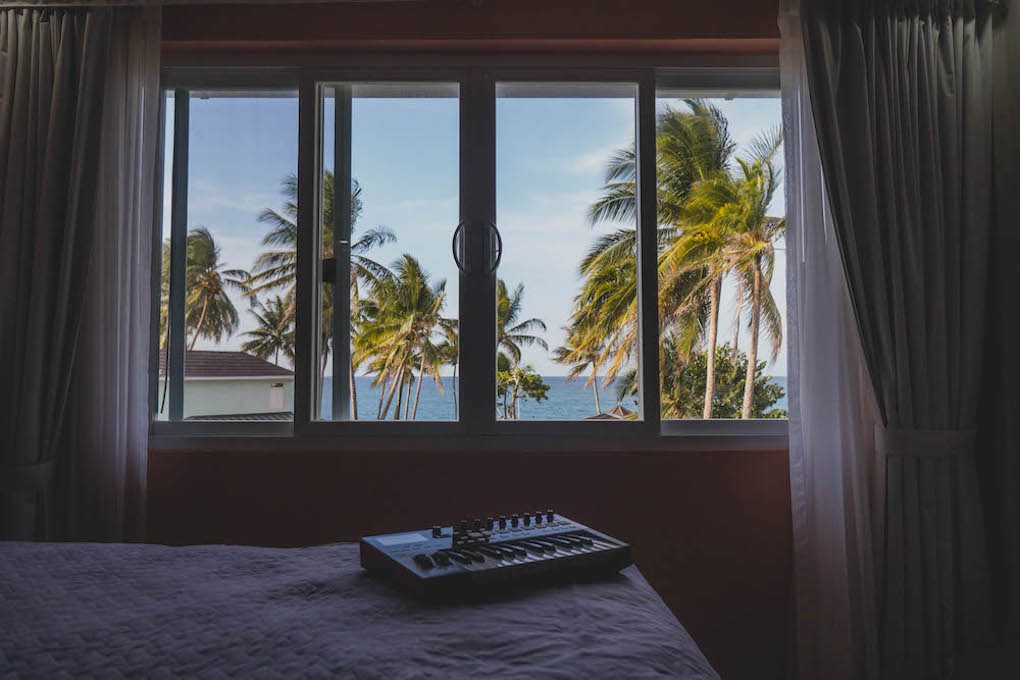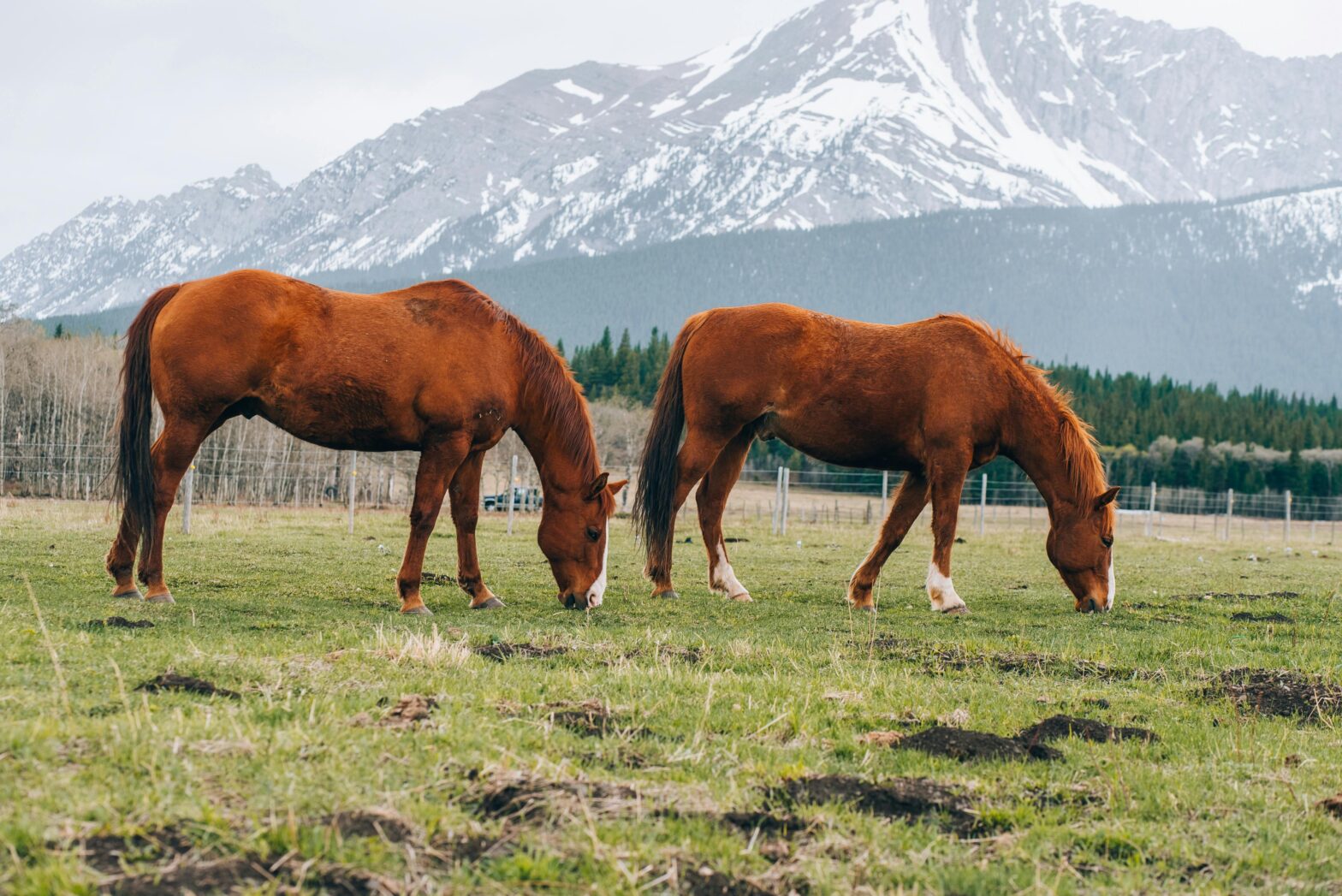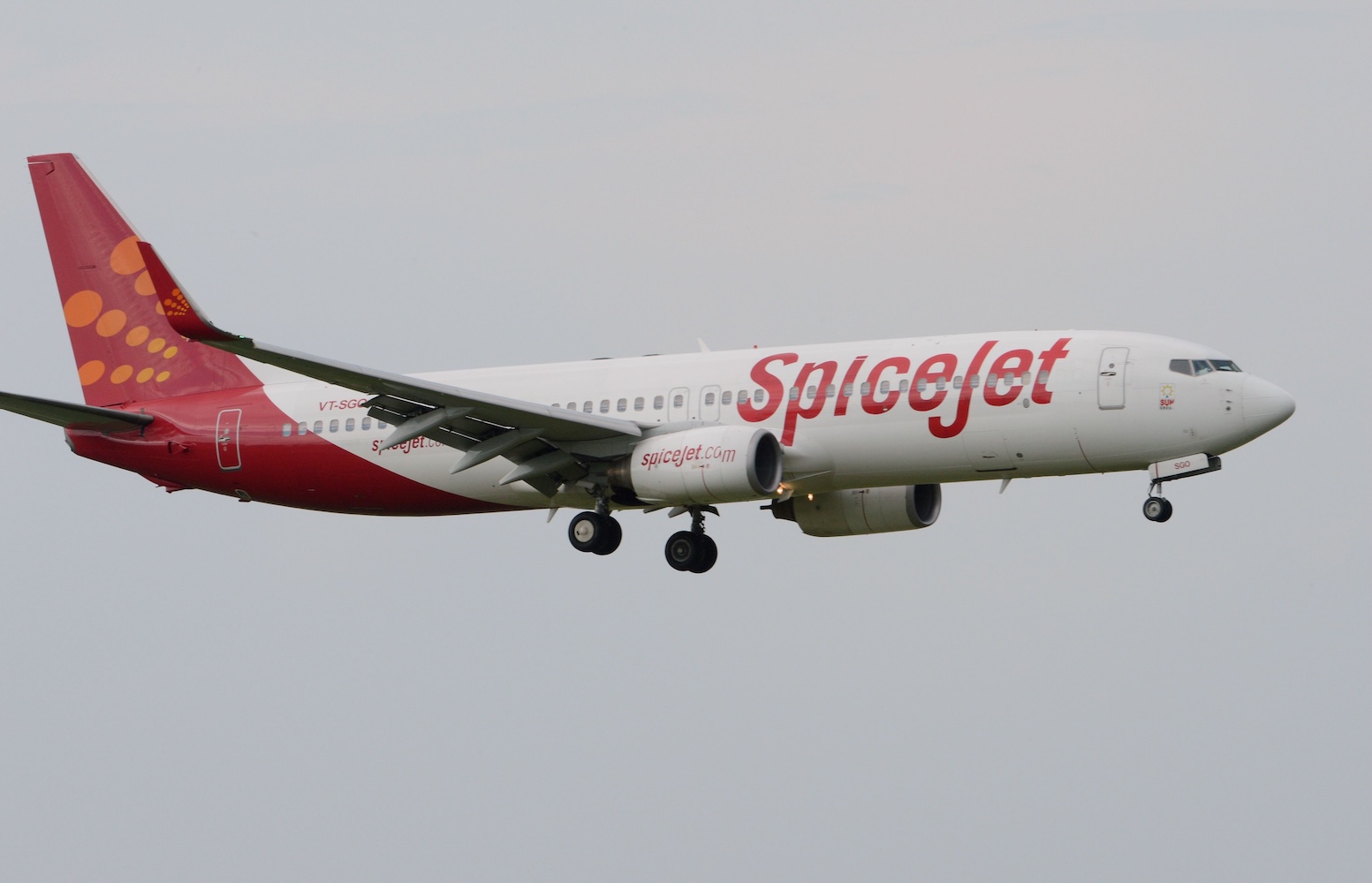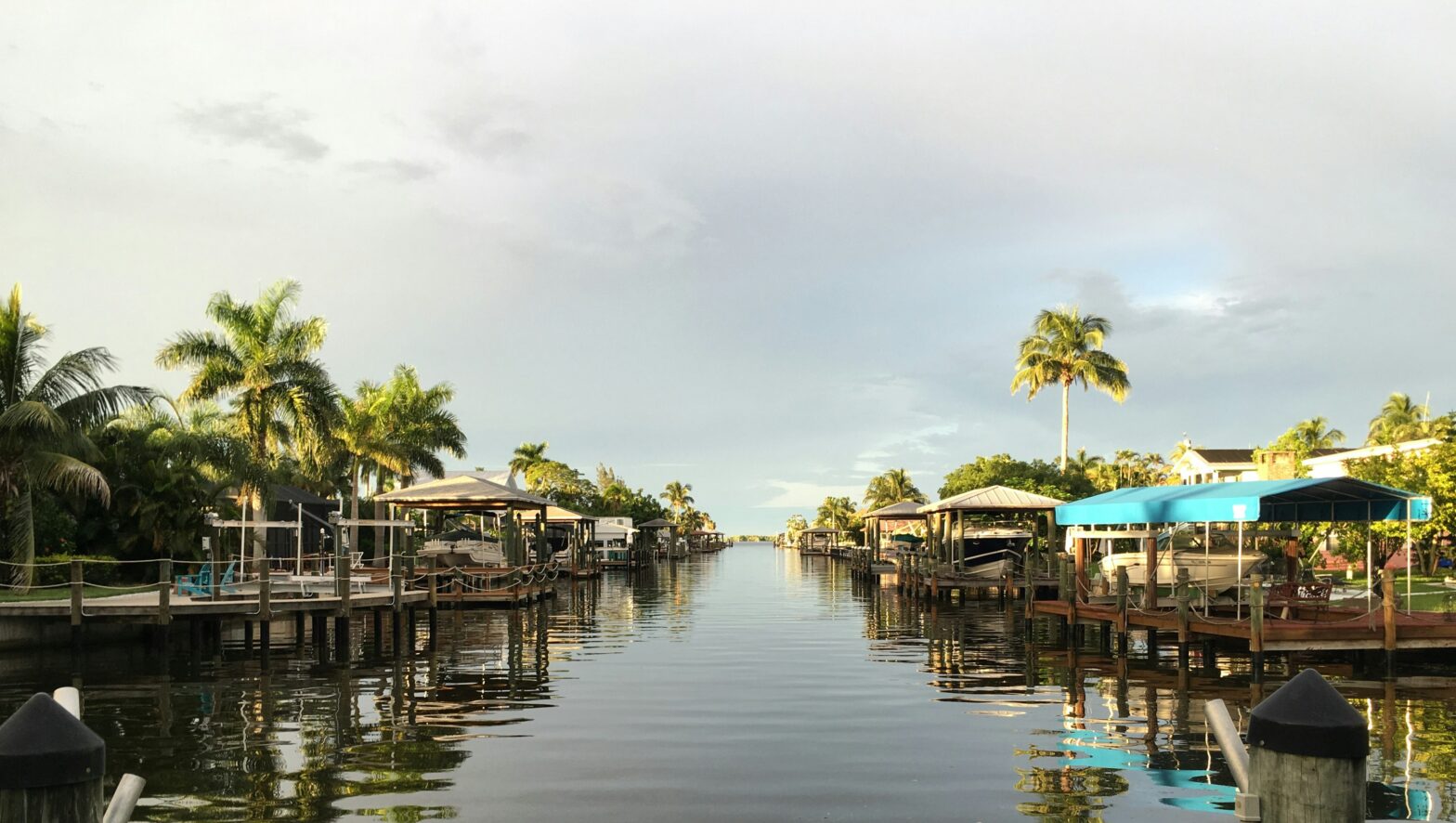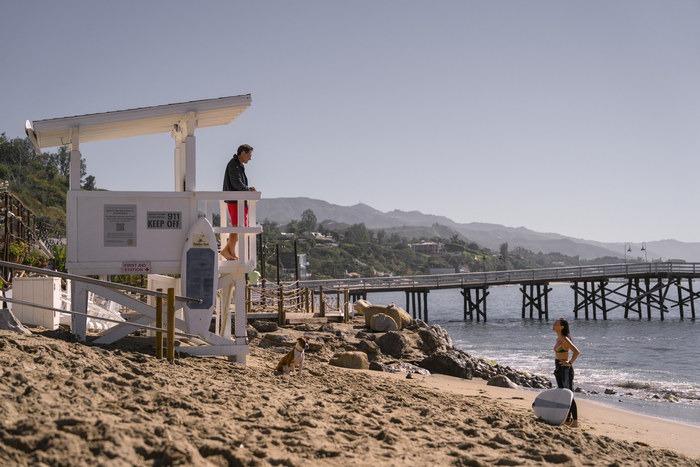One cannot discuss the history of Caribbean music without Bob Marley, the same way we cannot mention hip-hop without Jamaican-American DJ Kool Herc. The deep-rooted connection between hip-hop and Jamaican culture stretches back to the mid-1960s.
At the time, Herc migrated from Kingston, Jamaica, to Bronx, New York, considered the birthplace of hip-hop.
While most are familiar with reggae and dancehall, many other music styles have come from Jamaica, including ska, dub, and Caribbean mento. Jamaican native Hector Roots Lewis described it as a “well-aligned” connection that celebrates the U. S. and Jamaica.
“Just because of what Kool Herc did after he left Jamaica, I feel like the sound system culture from the late 1970s into the late 80s would have DJs playing a song with a vinyl. Before, the dancehall space was for playing the music they won’t play on the radio,” he revealed to Travel Noire.
Soon after, 90s trailblazers like Queen Latifah, Tribe Called Quest, and Biggie Smalls (a rapper of Jamaican descent), began using Jamaican slang and Patois language in their music. It also led to successful hip-hop/reggae collaborations such as “Dem No Worry We” from Jamaican-born rappers Super Cat and the late Heavy D, who is also of Jamaican descent.
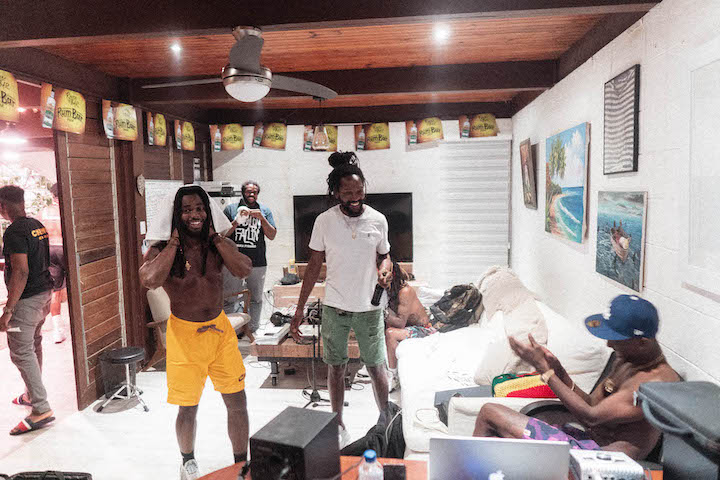
“I feel like what happened was that over the course of time, dancehall started to create artists in that space that would come onto the microphone and DJ what he’s seeing, almost like dub poetry and music. I feel like that just went over to the hip hop space while the disco world was happening.”
To help deepen that connection between U.S. and Jamaican artists, music executive and Friends Only founder Natalie Prospere curated a compilation album titled “Friends Only, Jamaica.” Born to West Indian parents from Jamaica and Montserrat, Prospere tapped Grammy-nominated duo Earthgang (Olu & WowGR8) of Atlanta, GA, and artist Buddy of Los Angeles, CA, among others to attend a writing camp in Ocho Rios, Jamaica, in June 2020.
First-time visitors in Jamaica
When we caught up with Olu of EarthGang about his first trip to Jamaica via Zoom, the rapper was cool as a cucumber wearing a shiny lime green shirt while on vacation in Puerto Morelos, Mexico.
“It was my very first time in Jamaica. It was lit. We stayed in Ocho Rios. We went ATVing, went to some of the rivers and I got in the river,” Olu said before smiling. “The water at sea was so blue, but the rivers were so clear. It was just so amazing. I enjoyed myself.”
On the first day of the writing camp, EarthGang and Buddy recorded “Never Be The Same,” the lead single from the “Friends Only, Jamaica” album. It also features Jamaican artists Kabaka Pyramid, MediSun, and Hector Roots Lewis of Kingston, showcasing their unique melodies over booming production.
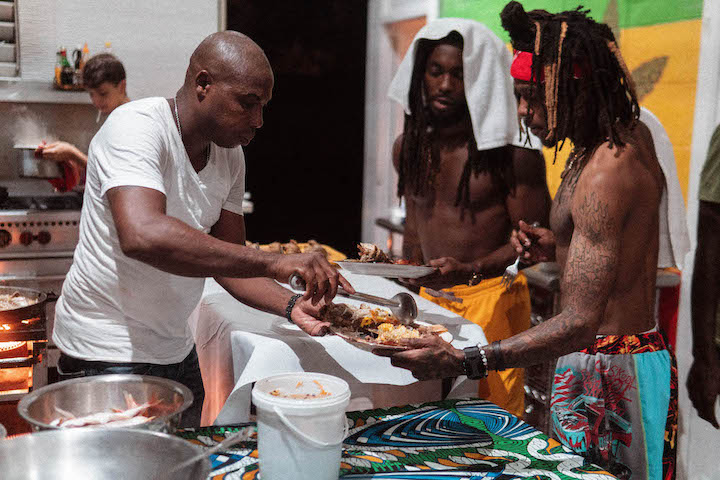
Buddy, who collaborated with Nipsey Hussle, Ari Lennox, and more, indulged in traditional Caribbean dishes like jerk chicken, the different accents, and lovely weather for his first trip to Jamaica.
“Soon as we landed, that was the first song we made,” the rapper mentioned before noting the nearly six-hour flight from Cali to Jamaica. “It was a long flight, [I’m] super hungry. We were trying to get there where they were working, and it was separate from where we were staying. We dropped all our bags, and then we went to the studio where we were cooking and making beats. And then, as soon as we walked in, I was hungry and eager to record.”
Buddy added, “That’s why I start [my verse] like, ‘Fresh off the plane, I ain’t never ate. Show up when I want to ni*ga, I’m late.'”
The History of Jamaica’s Music
Produced by Dre Day, “Never Be The Same” has an unruly vibe, heavy bass drums, and lyrics about freedom with a Caribbean twist. Compared to two of his favorite things about hip hop/rap, EarthGang’s Olu said the “focus” when creating music is “the drums and the bass.”
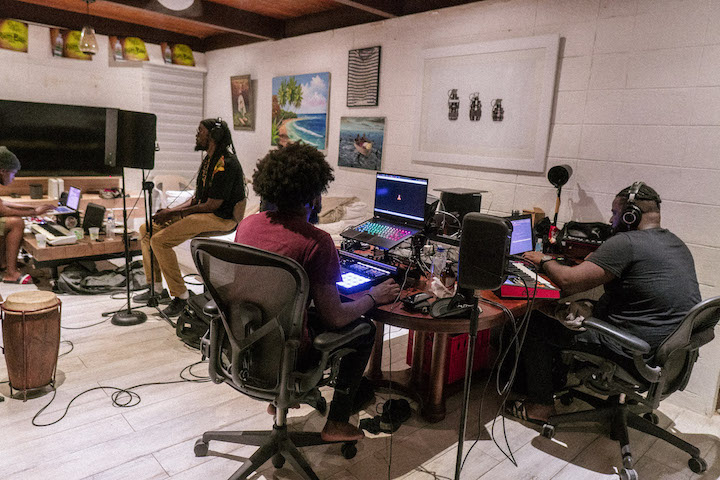
“Those two things came straight from Jamaica. You can go with [reggae legends] Bob Marley and The Wailers, Lee “Scratch” Perry and people who created that sound [that married] the bass drum and this bass instrument,” he continued. “How we got Miami bass music, which has morphed into trap music. That came from a lot of Jamaicans coming to Miami. There were a lot of Jamaicans going straight up to New York and finding old records and using these records.
“Not only did we take the records and sample them, but folks hopped on the mic and started just talking off the top of their head. Sometimes they would rhyme, sometimes they would shout people out, and sometimes they would talk about what’s going on. It’s a beautiful thing.”
Meanwhile, Lewis’ melody synced perfectly over the beat, reminiscent of his mother, the late Jamaican singer Barbara Jones. He shared lyrics about Ethiopian emperor Haile Selassie, who made a legendary visit to Jamaica in 1966, reports the Jamaican Observer.
“I think for all my childhood years, it took all those years to wrap my mind around the fact that, ‘yo, your mother is an artist.’ But throughout all of that time, it made me develop from just watching her to following her,” said Lewis.
The 31-year-old uses his mother’s legacy as the blueprint for his solo career after recently signing as the first artist to Chronixx’s Soul Circle Music record label. After playing percussion for reggae legend Chronixx and his Grammy-nominated band from Jamaica, Zincfence Redemption, for seven years, Lewis has now tapped into a different chapter of his artistry with his latest single, “Ups and Downs.
“It’s a good vibe to see that and carry on the lineage in this way,” he added. “She always told me I would do it in a different way. This is when I was about 17 or 18. She’d said, ‘yo, you’re going to do music like me, but you’re going to do it on a whole different level.'”
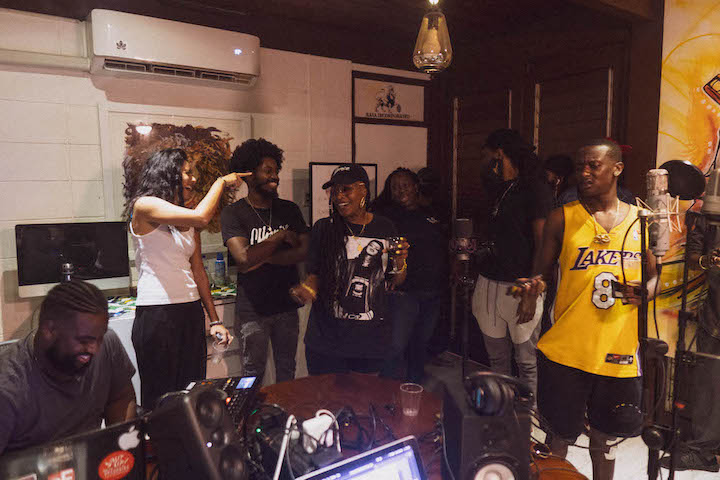
Lewis intends to host a similar writing camp in the future, inviting others to experience the “many gems of the island,” like Rastafari Indigenous Village in Montego Bay or the sound system culture at the Kingston Dub Club.
“Because the thing is Jamaica is a vibe. It’s not even because I come from there but the energy of the island, you’re affected immediately,” he said. “I feel like it brings you into an immediate kind of space, where you just feel so much inspiration.”
The unapologetic influence of Jamaican culture on hip-hop continues to come back full circle, including most recently with internationally renowned artists like Busta Rhymes, Shaggy, Sheenseea, Konshens, Popcaan, Sean Kingston, and more.
For more information, follow @earthgang @buddy @hectorrootslewis and @friendsonly on Instagram.
Story written by: Rachel George
